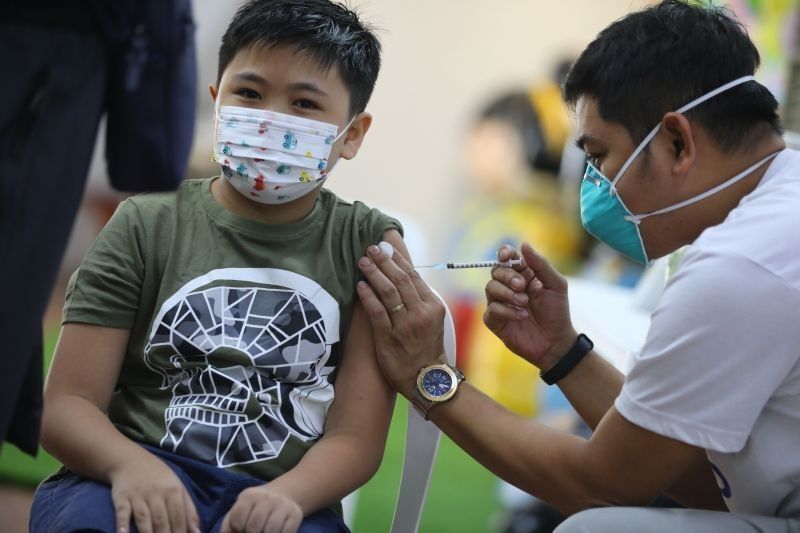UNICEF: 1 million children in the Philippines have never been vaccinated

MANILA, Philippines — The Philippines has one million children who have not received a single dose of childhood vaccine, leaving them susceptible to transmission of various life-threatening vaccine-preventable diseases such as polio, measles, and tuberculosis, the United Nations Children's Fund or UNICEF said Monday.
In a statement Monday, UNICEF lamented "persistent missed opportunities" that it attributed to "past governance challenges, low demand for services, and disruptions by the COVID-19 pandemic."
Pointing to gains over the coronavirus pandemic, though, it said that "the number of adults and children administered the COVID-19 vaccines have shown that the Philippines can reach significant numbers in a short period of time" as it called on the government to prioritize investments and human resources "to reach zero dose children with clear and timebound strategies and targets."
“Falling child immunization rates and the increasing number of children at risk of measles, polio and other vaccine preventable diseases must be treated as a public health emergency that needs urgent action,” UNICEF Philippines Representative Oyunsaikhan Dendevnorov said.
"Lessons learned from COVID-19 highlight the need to strengthen primary health care through integrated health and nutrition services for a strong and resilient health system in the long term."
DOH: Measles outbreak possible
Warning of an impending measles outbreak, the Department of Health also said earlier that out of an ideal international target of 95% immunization in countries, only 62.9% of children and infants in the country were fully immunized against vaccine-preventable diseases, with almost 3 million children not having measles vaccination.
In 2021, the Philippines was the top five contributor to the 18 million zero-dose children recorded around the world and the top seven contributor with the most children unprotected for measles. Per the 2022 World Health Organization Risk Assessment, all regions in the Philippines are at high-risk for a measles outbreak.
"The Philippines has already been plagued with low coverage on protective vaccines before the COVID-19 pandemic, never having met the ideal target of 95 per cent routine coverage rate for children since the 1990s. Low coverage increases the risk of life-threatening diseases for children," UNICEF said in its statement.
UNICEF pointed out that there were still 1.5 million Filipino children who had not received or completed their polio vaccine even after the government vaccinated some 11 million children in 2021.
"Out of 81 provinces in the Philippines, 67 are at high risk for polio infections. For cities, 71 cities out of 96 are at high risk for polio...Complete vaccination for polio according to schedule is the most effective way to protect children from this disease," it said.
Recommendations
UNICEF on Monday also recommended increasing human resources for health in local government units to improve services. It also encouraged the use of community platforms and media including social media to address misconceptions and misinformation on vaccines. It also recommended:
- improving tracking of defaulters
- increasing vaccination visits
- establishing sustainable service delivery mechanisms through primary health care platforms
- tackling persistent stockout of vaccines.
"Access to services must be improved especially for those in far-flung areas who are discouraged to get their children vaccinated because of transportation and other costs," it said.
"While the supplemental immunization planned for March 2023 can jumpstart vaccination efforts, in the interim, catch-up immunization and strengthening the primary healthcare delivery platforms need to be fast-tracked."
- Latest
- Trending































